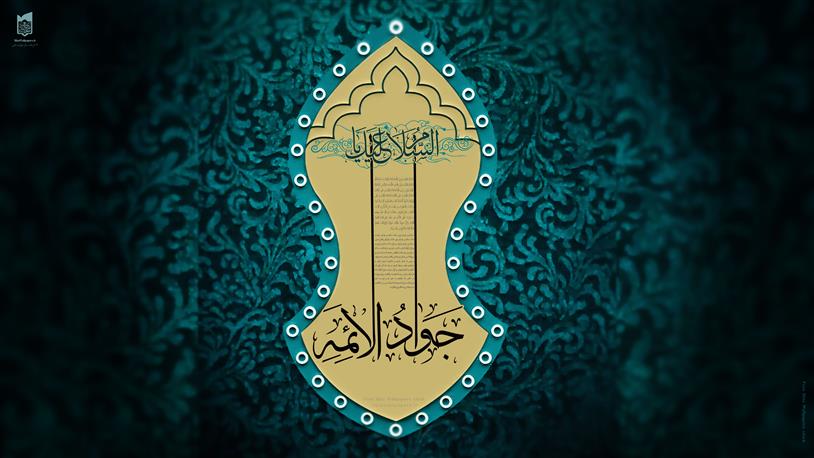Imam al-Jawad (AS) was born on 10th day of the month of Rajab, in the year 195 A.H. in Madina - the city of his grandfather, the Messenger of Allah (S.A.W.), under the care of his father, Imam Ali bin Musa al-Redha (AS) who was qualified with the leadership (Imamate) and its qualifications, a lofty status, the position of leadership in the ummah and in the sciences of Islamic Shari'a and its laws.
The Imam (AS) was born in a period full of events and political situations, conflicts, and the tension of events of the Abbasid caliphate between Amin and Ma'moon, the two sons of Harun “Rashid”.
Those political events and the situations of the conflict which was going on between the two brothers, the Abbasid caliphs, never ended without reflecting their effects on the life of Imam al-Redha (AS) attracted the attention of the Muslims -in the city of his grandfather, the Messenger of Allah (S.A.W.) - including religious scholars, jurisprudents, governors, and common people. Thus, the political view of the caliph, Ma'mun, was directed towards him and, therefore, summoned him to the capital of his rulership (Merv) in the year 200 A.H. and appointed him as heir so that the caliphate would be transferred to him after Ma'mun's death.
The Imam Redha (AS.) was forced to leave Madina and move towards the city of 'Merv' (in Khurasan - Iran) to accept Ma'mun's invitation after many refusals and abstentions. Before moving to merv, he took with him, his son, Imam Muhammad al-Jawad (AS), then, he (AS) started out from Madina towards Mecca in order to pay a visit to the Sacred House (Ka'ba) and, also, to say farewell to it.
Imam al-Redha (AS) performed the hajj (pilgrimage) with his son, al-Jawad, who was only four years at that time.
Indeed, the young Imam expressed his adherence and love for his father by his insistence to stay under the care of the holy embrace. It was difficult for him to return home (Madinah), alone, and depart from his father, who wrote, in his farewell letter to the Sacred House, that he would not return.
The moments of farewell ended and the hour of departure approached; the young Imam al-Jawad(AS) returned home (to Madinah), bearing the yearnings of love, the adherence of a son for his father; his father moved towards the city of Merv while his heart departed to Madina, following the procession of the beloved al-Jawad.
When Ma'mun died, Mu'tasim ascended the throne. He (Mu'tasim), like his Abbasid ancestors, was worried about the leadership of Ahlul-Bayt (AS) and their political and scholarly status. Therefore, he exiled Imam al-Jawad (AS) from Madina to Baghdad in the year 219 A.H., for fear of his popularity and extending his effect. He did this, in order to draw the Holy Imam near the centre of power and scrutiny and isolate him from practicing his popular, political and scholarly role.
Indeed, Imam al-Jawad (AS) was exiled to Baghdad from Madina and stayed in Baghdad until in the year 220 A.H. when he was martyred by poisoning by his wife Ummul Fadl at the instigation of the ruling Abbasid caliph Mu'tasim.
His short life lasted twenty five years and some months, and was full of historical, ideological and scholarly struggle and achievements. The Holy Imam (AS) was martyred in Baghdad in the year 220 A.H., on the 29th of Thi al-Qa'adah and was buried in the graveyard of Quraish behind his grandfather, Imam Musa bin Ja'far (AS) the seventh holy Imam which was since then became famous as Kadhumain.
Source: globe.aqr.ir

